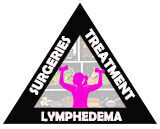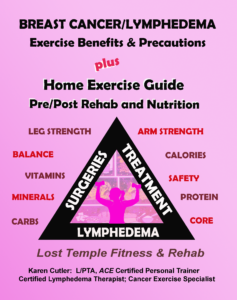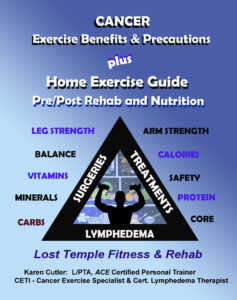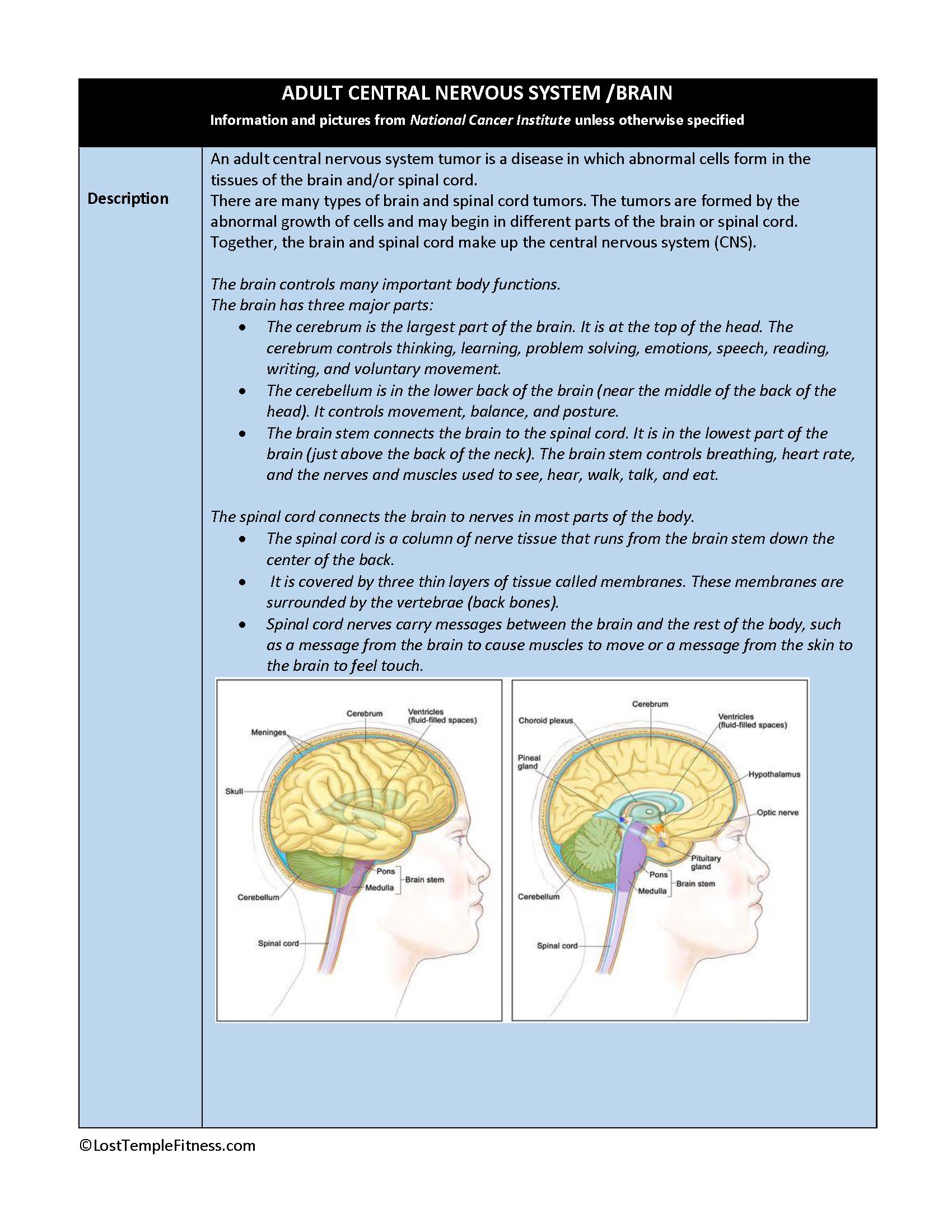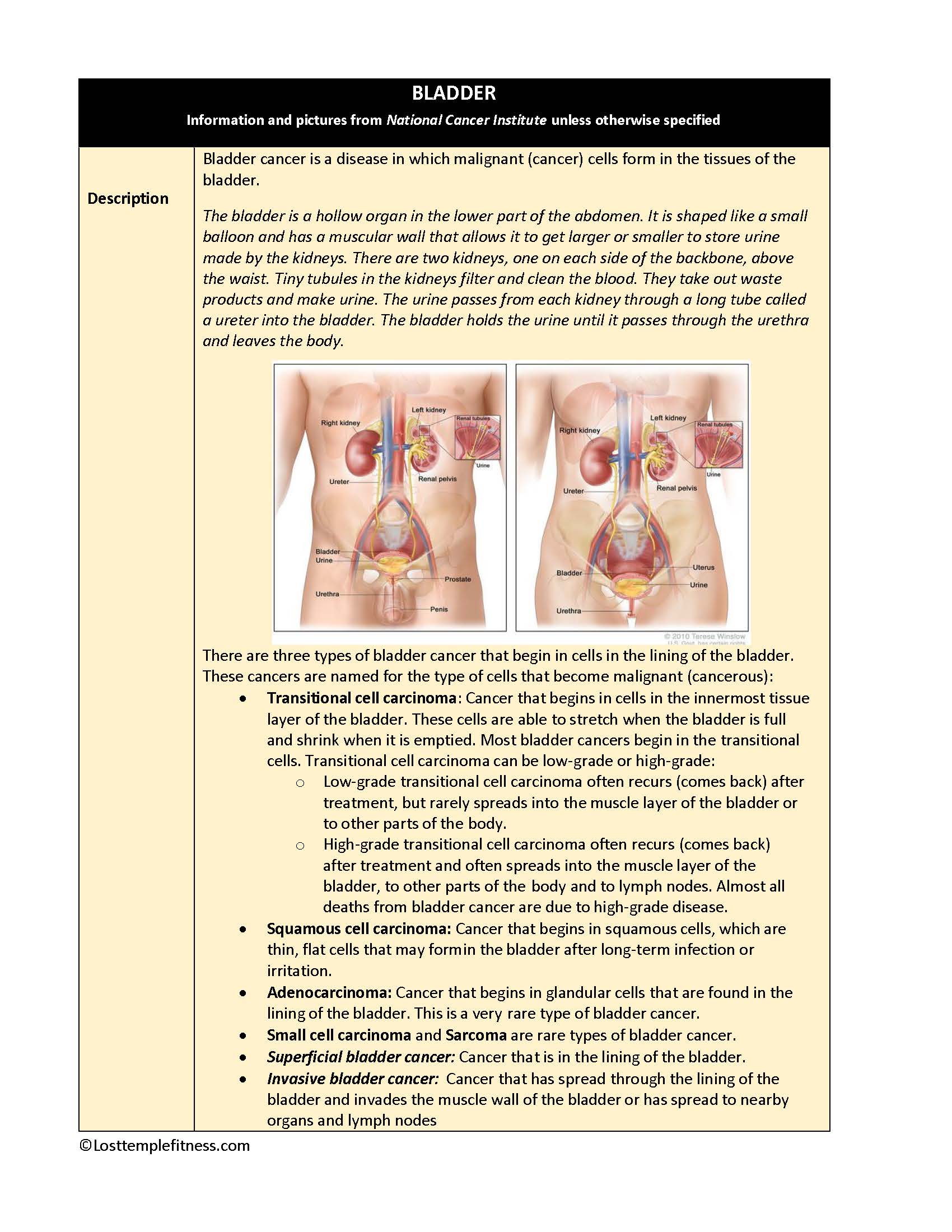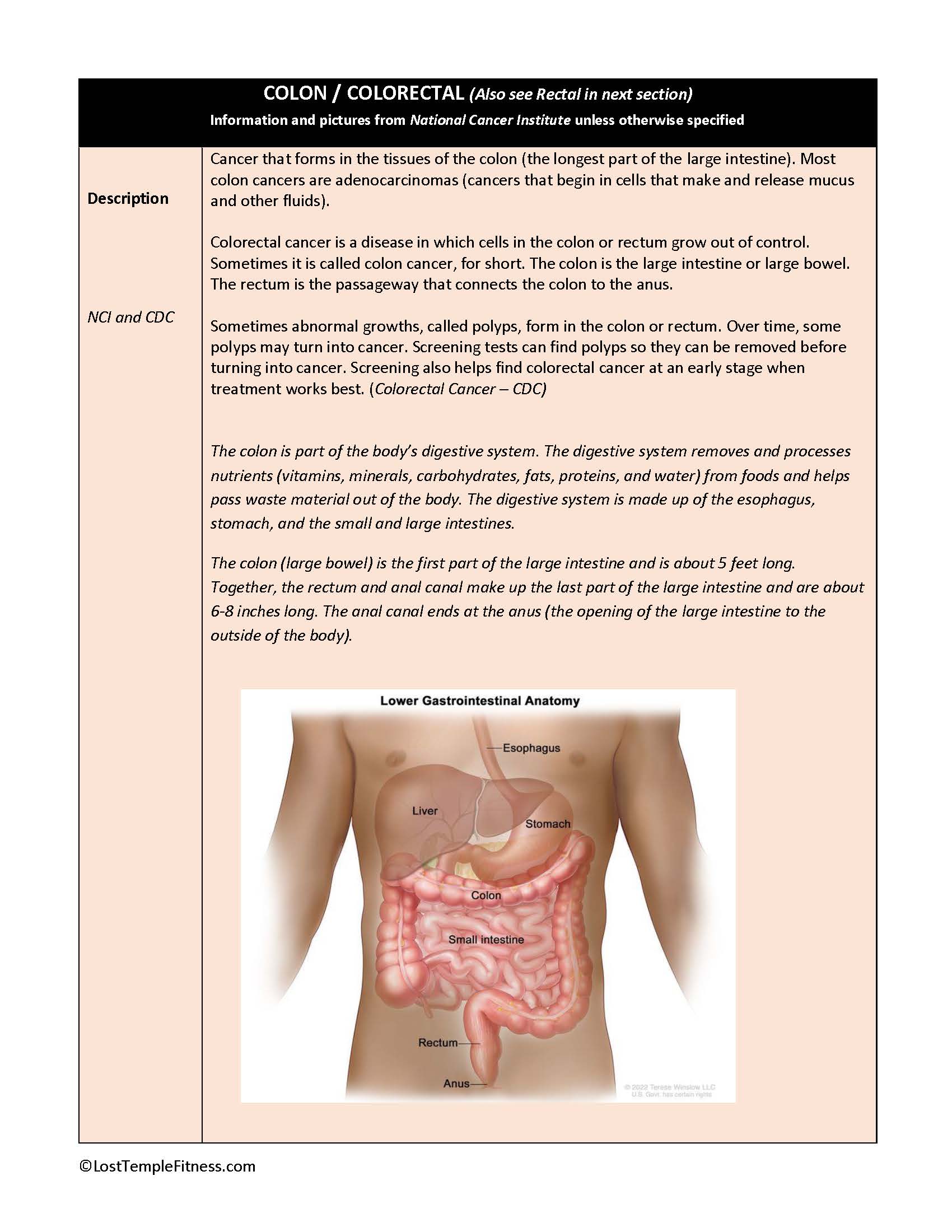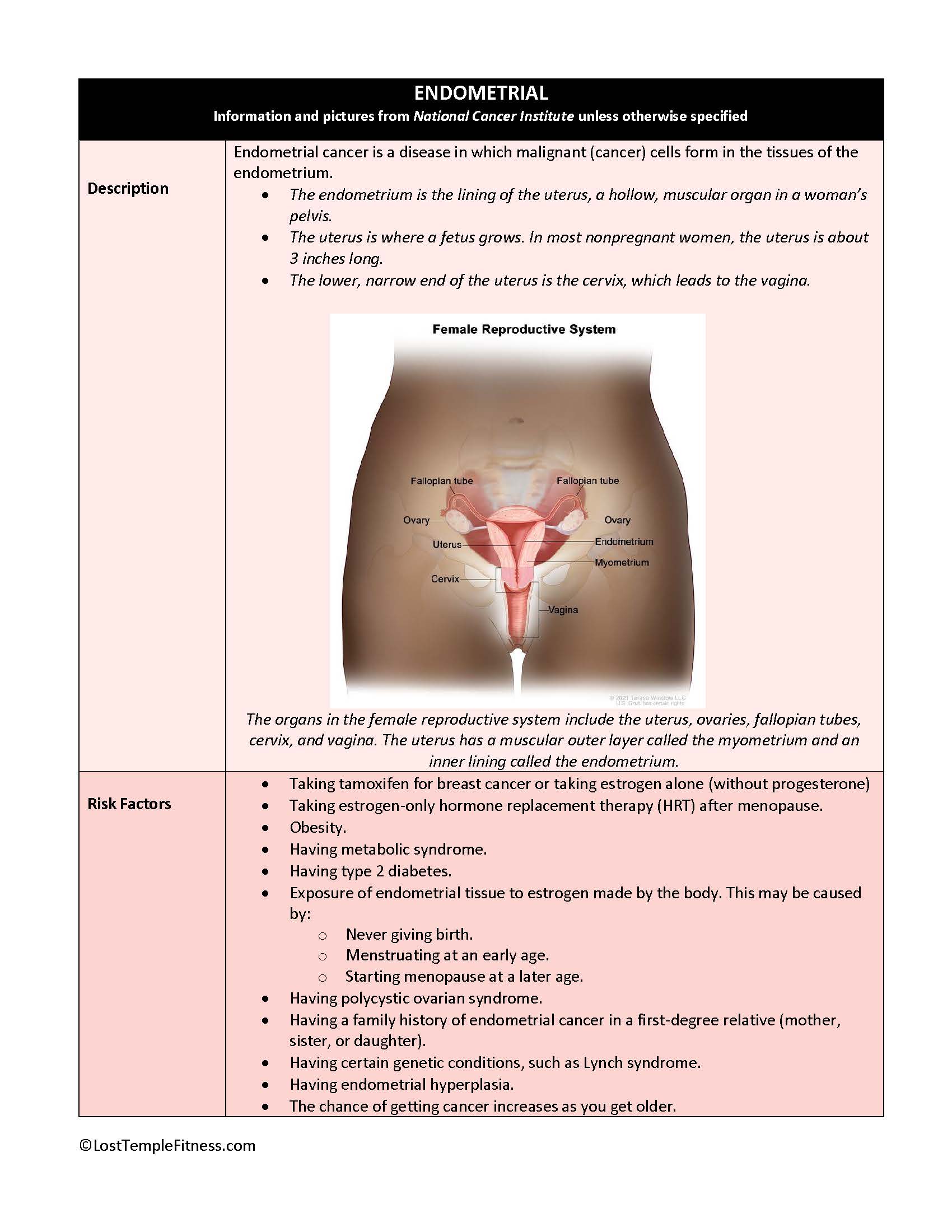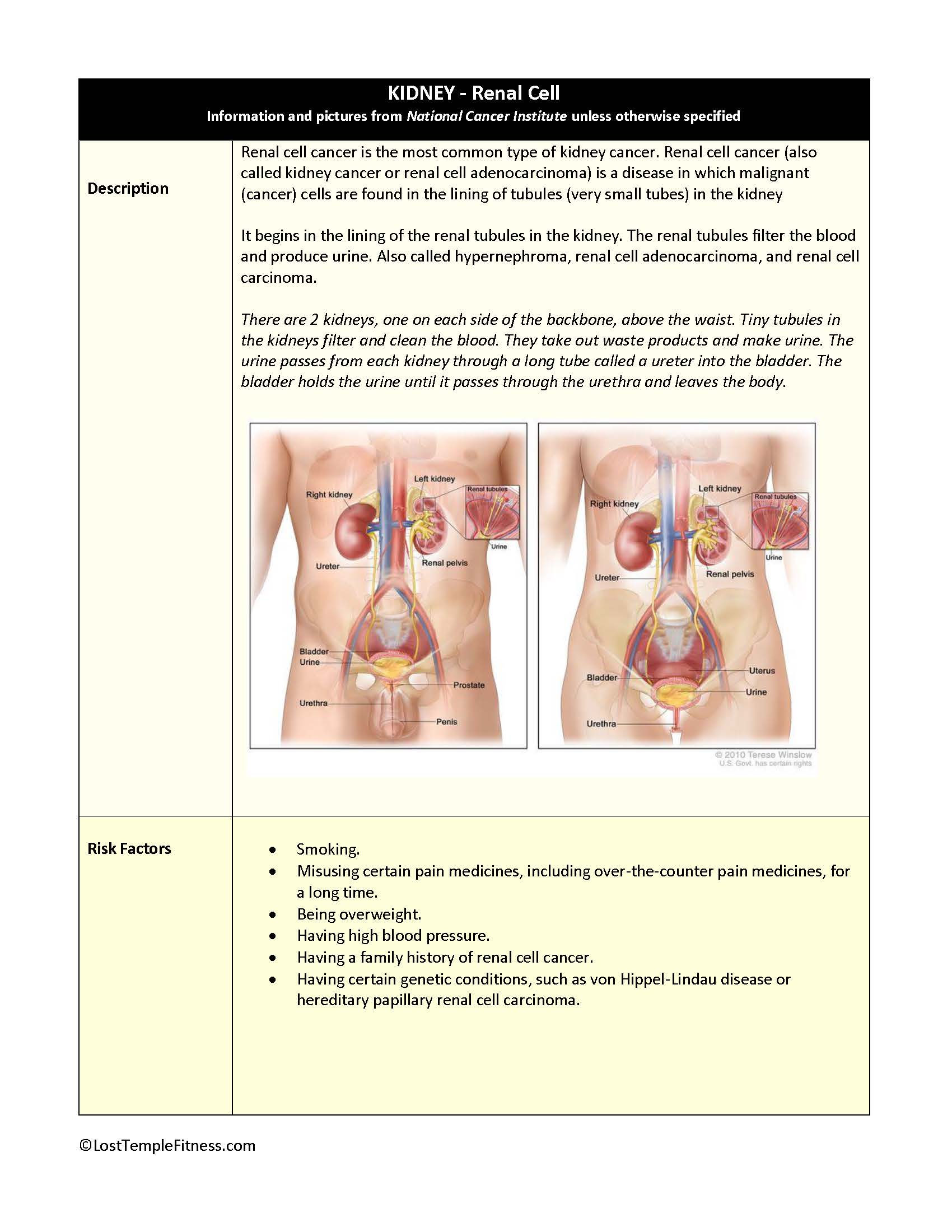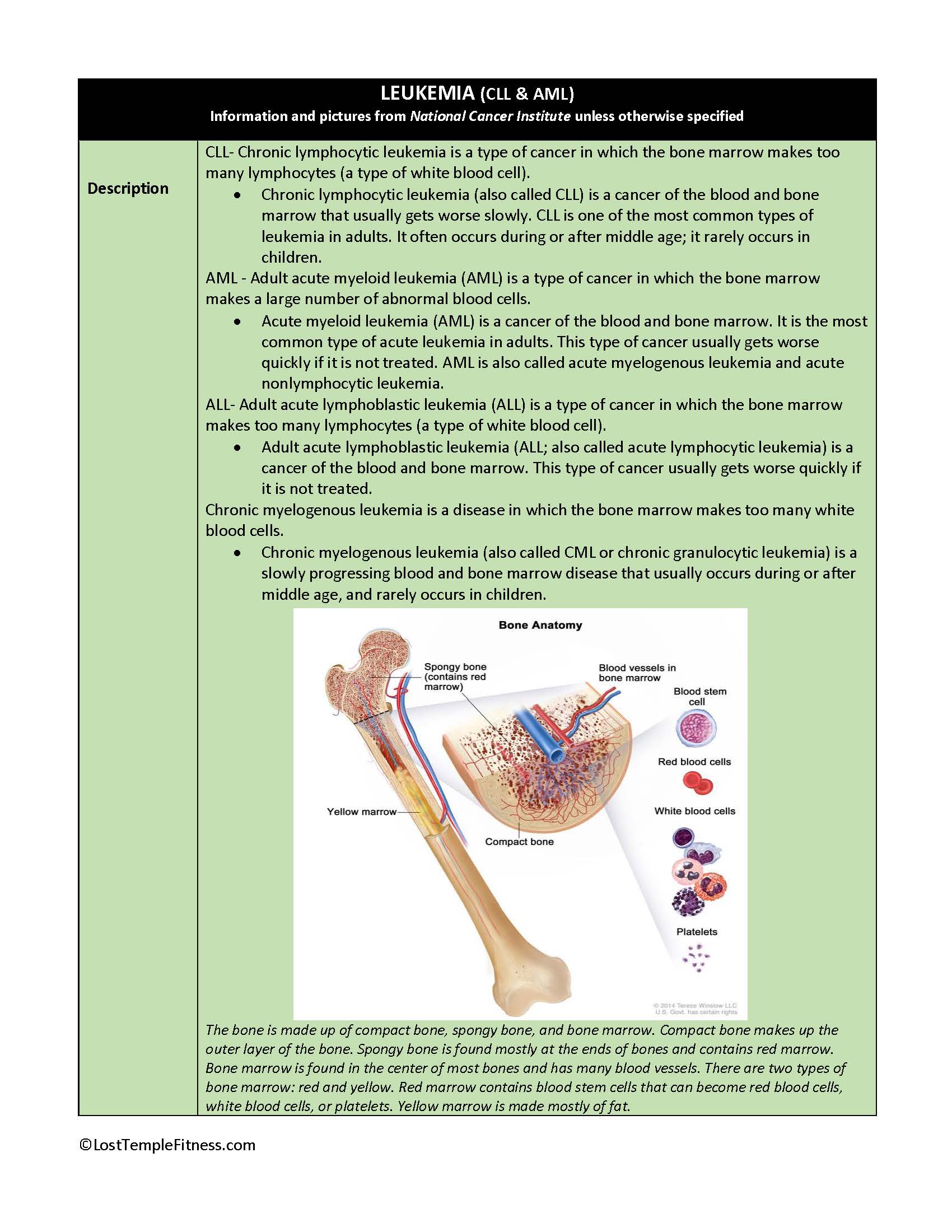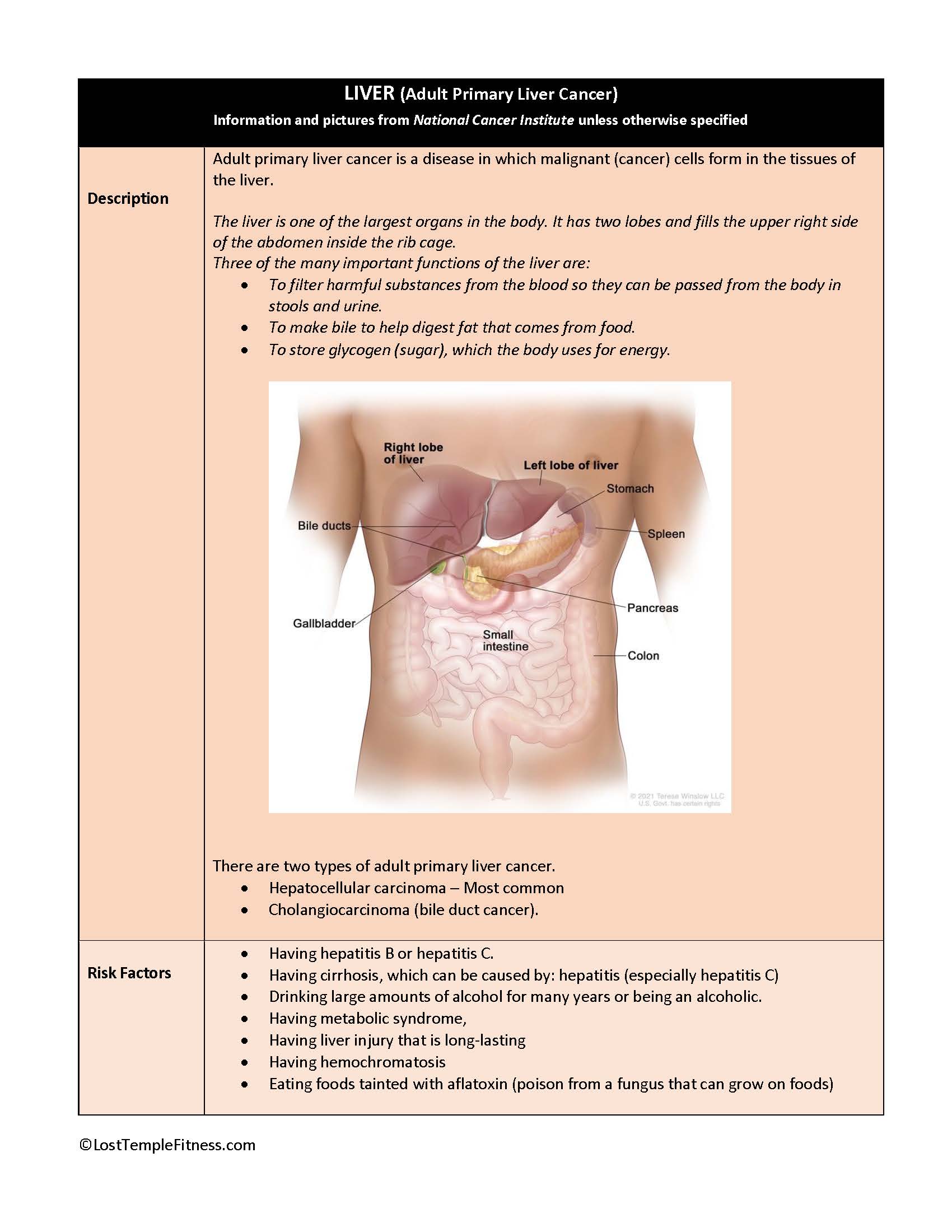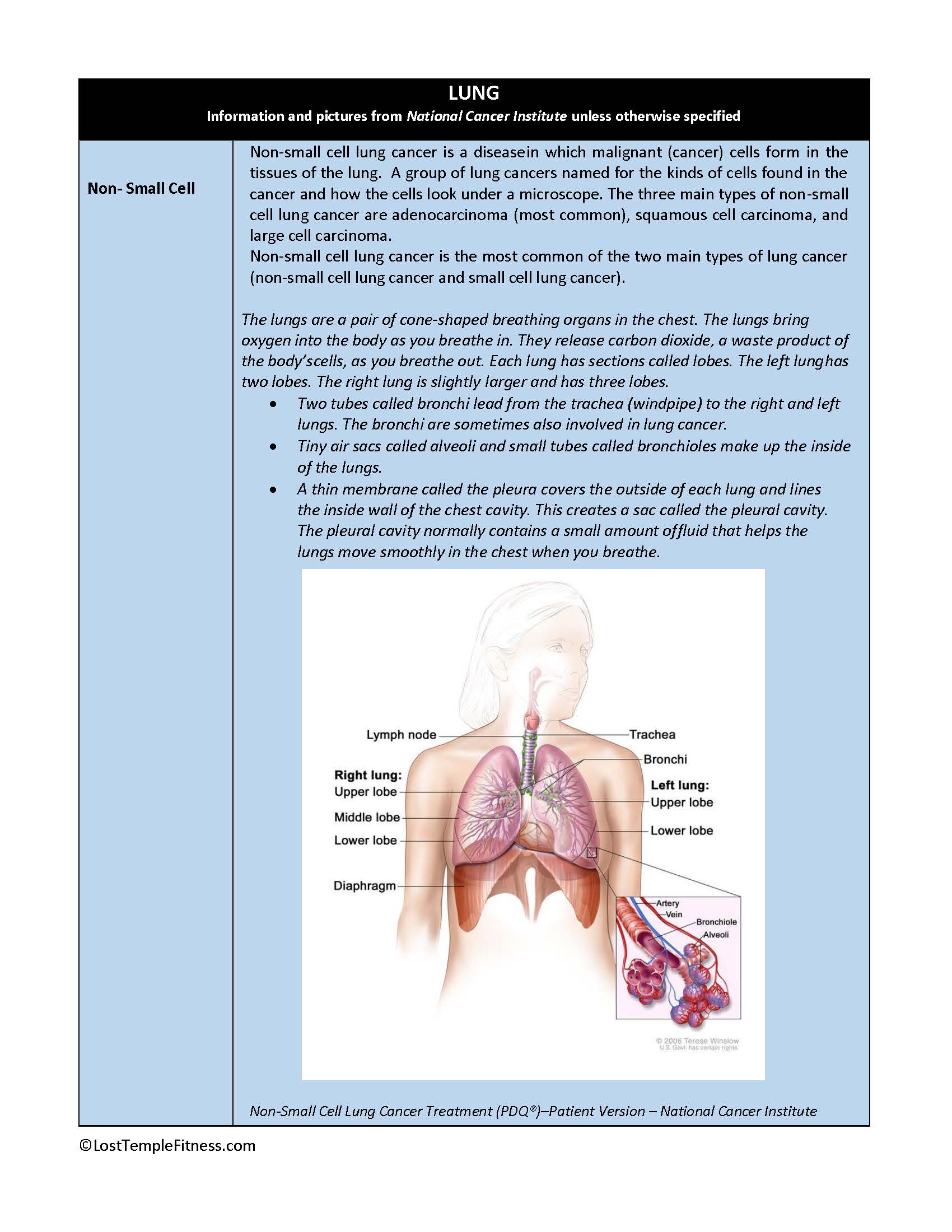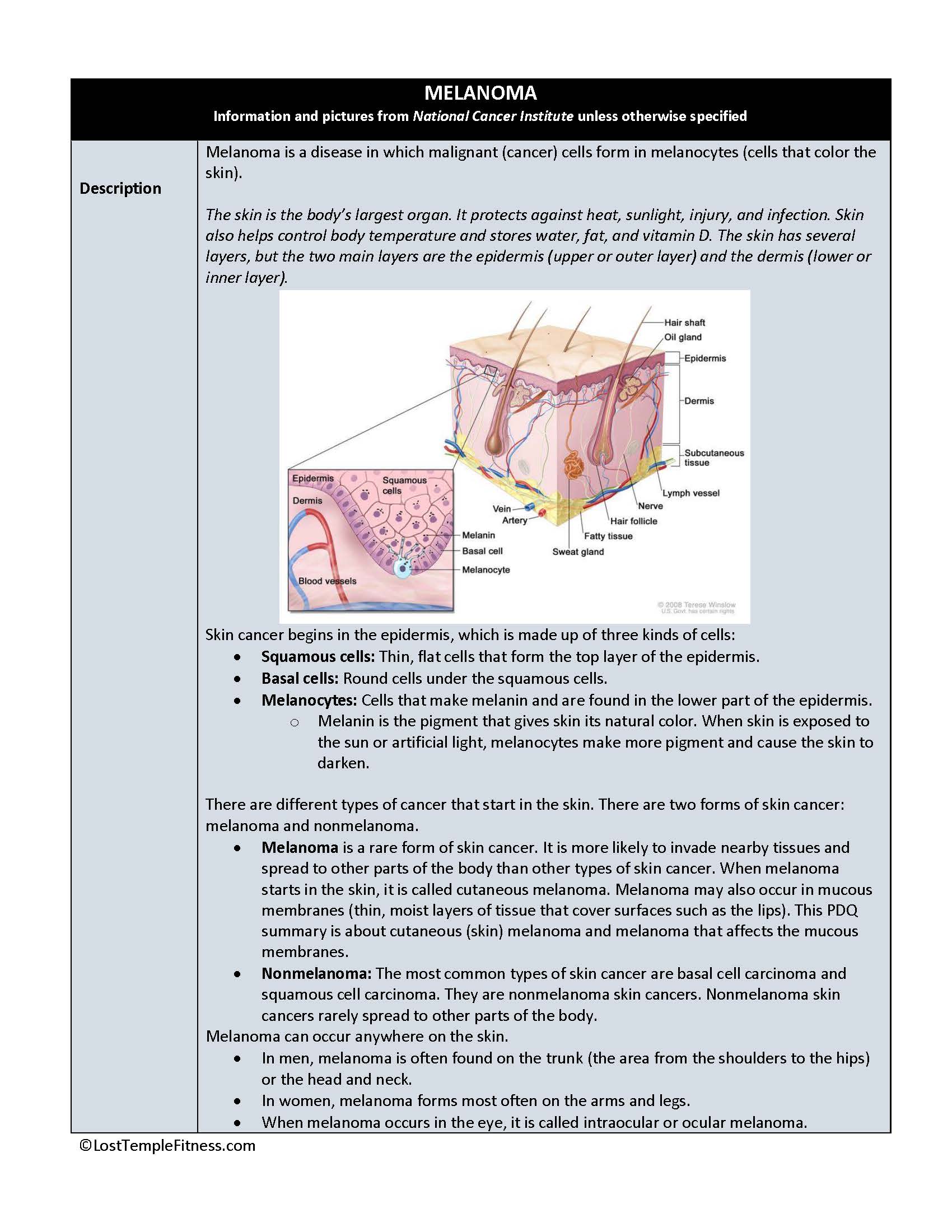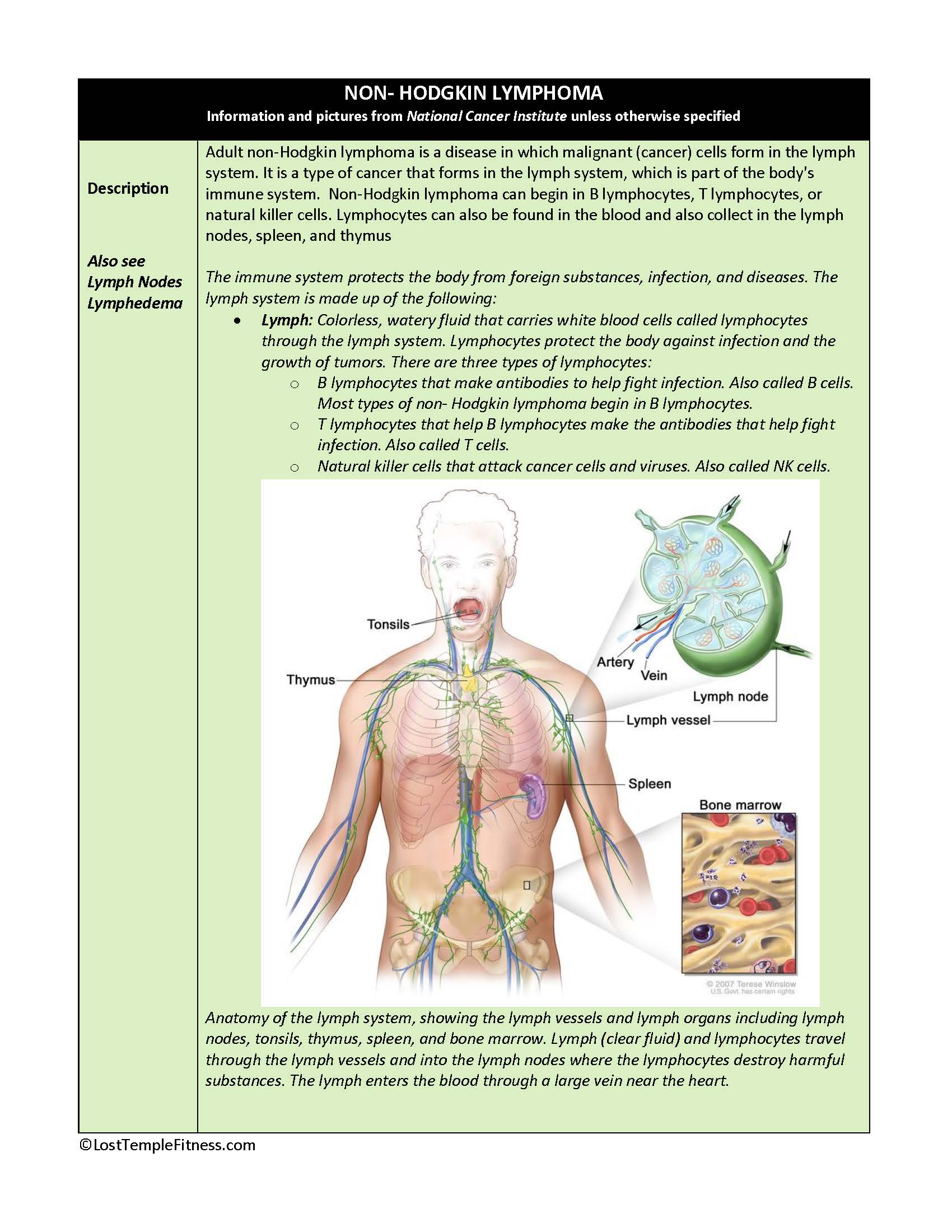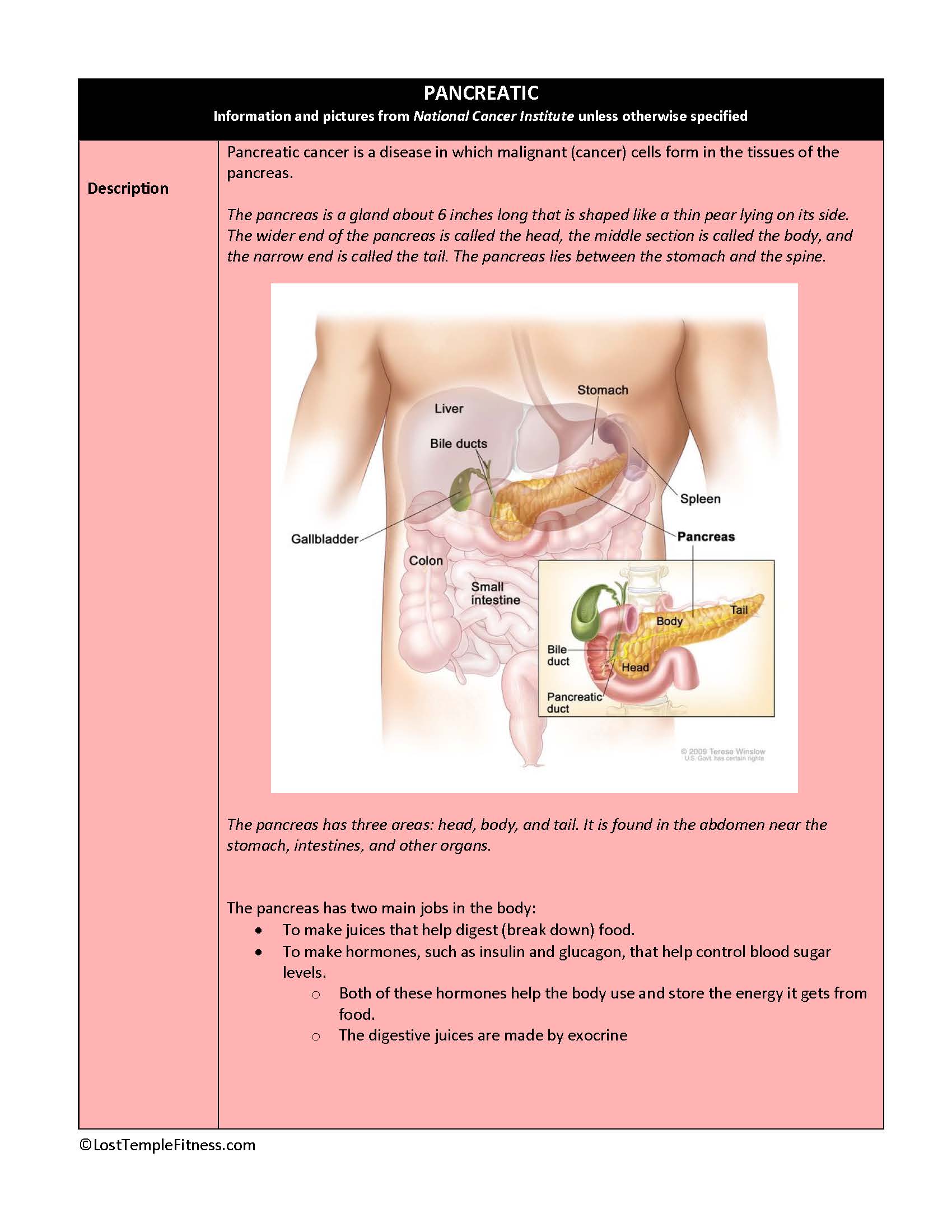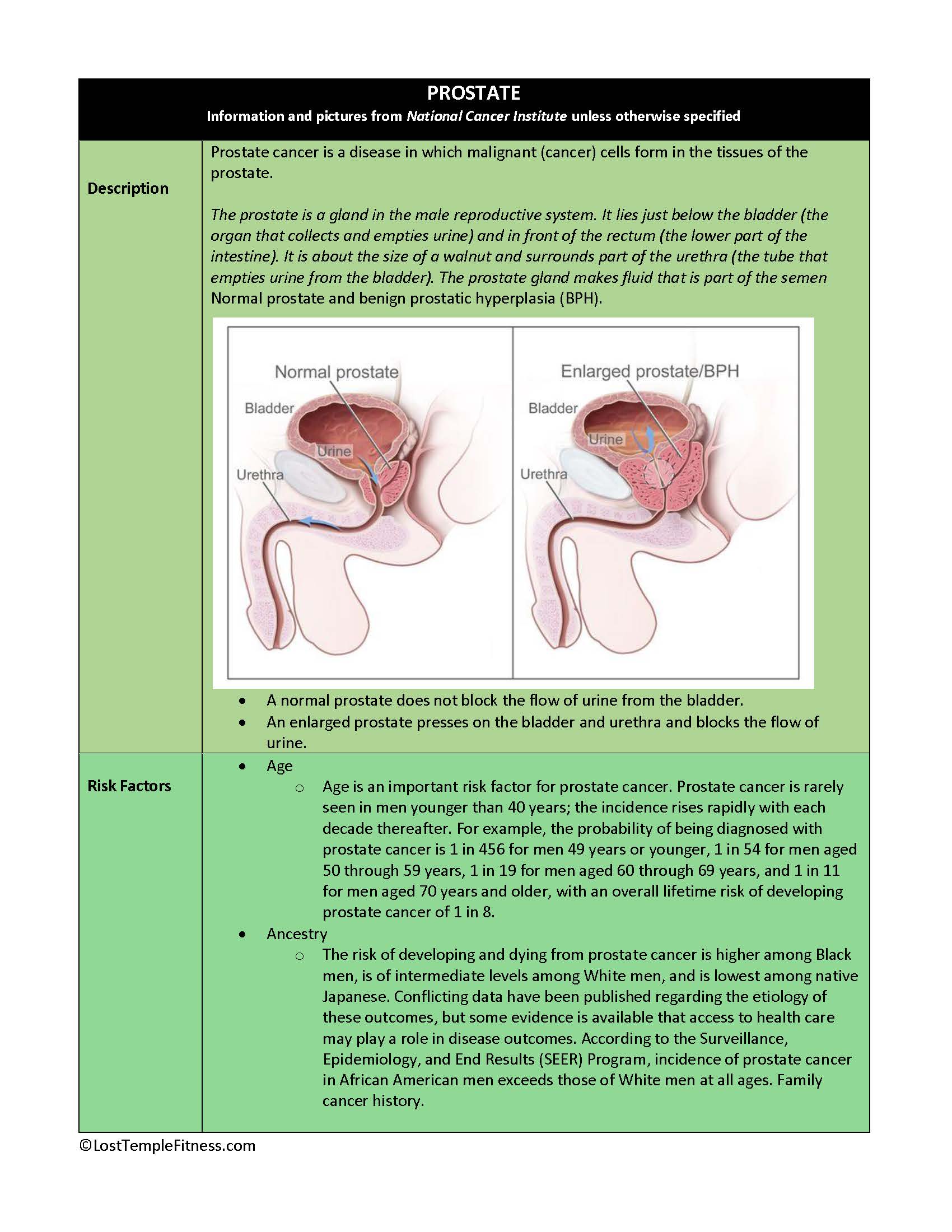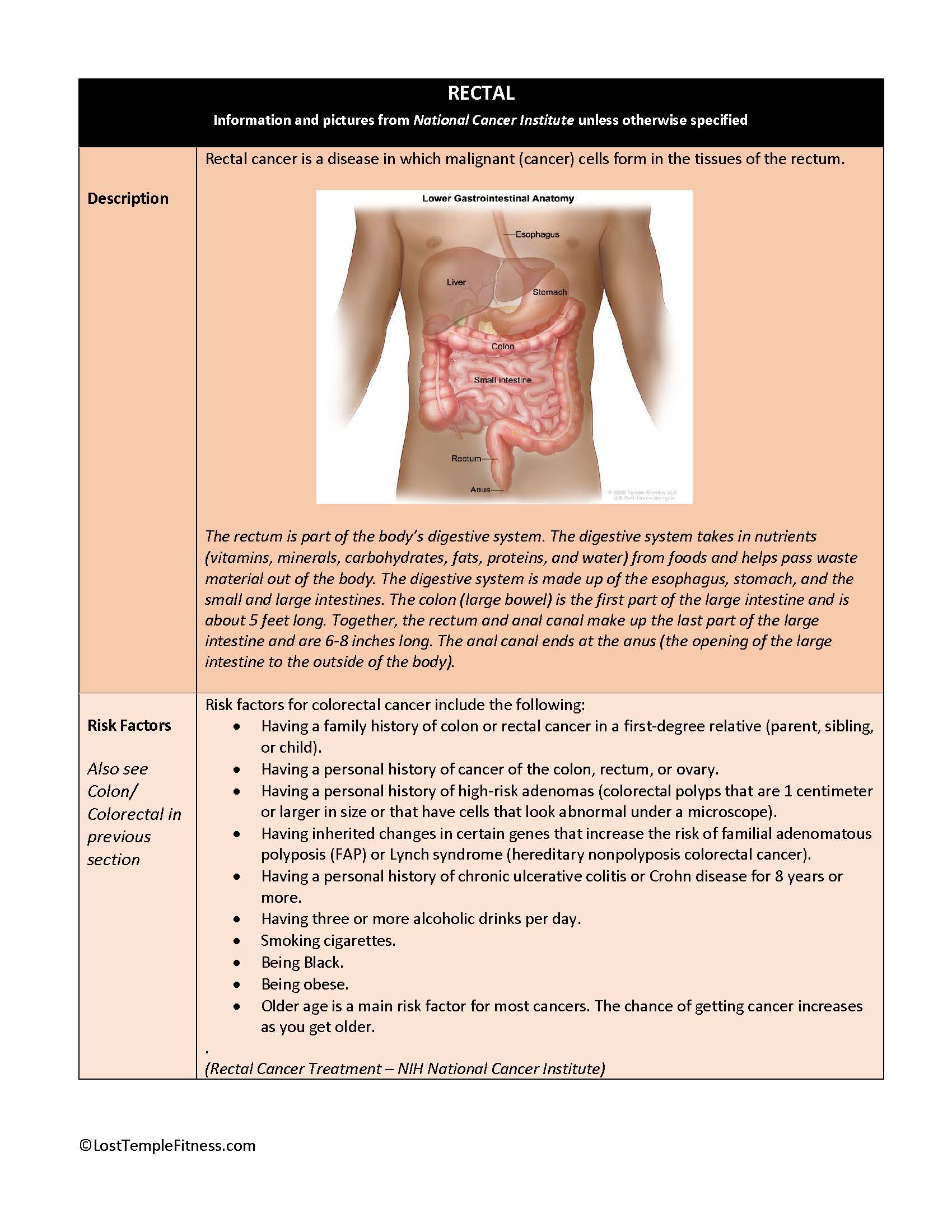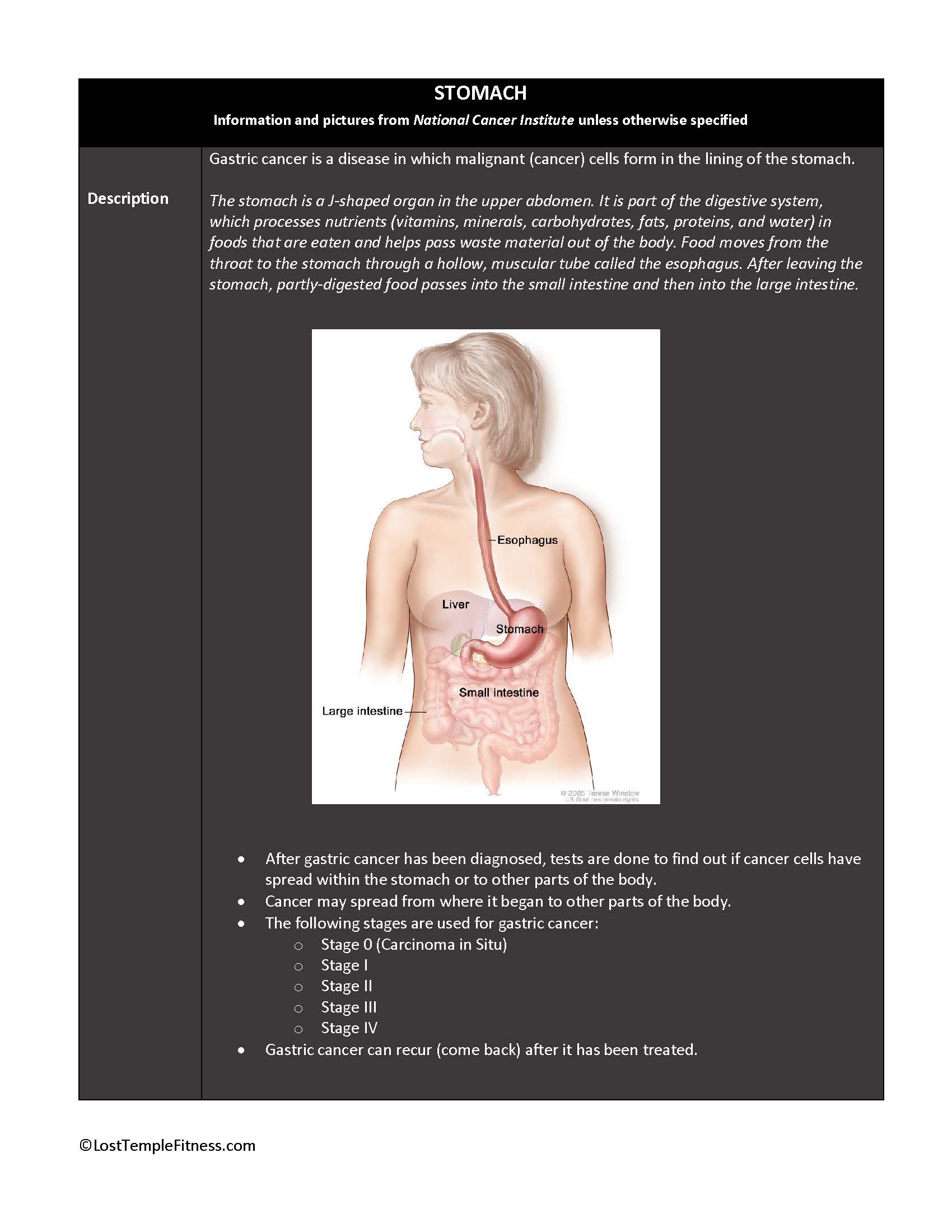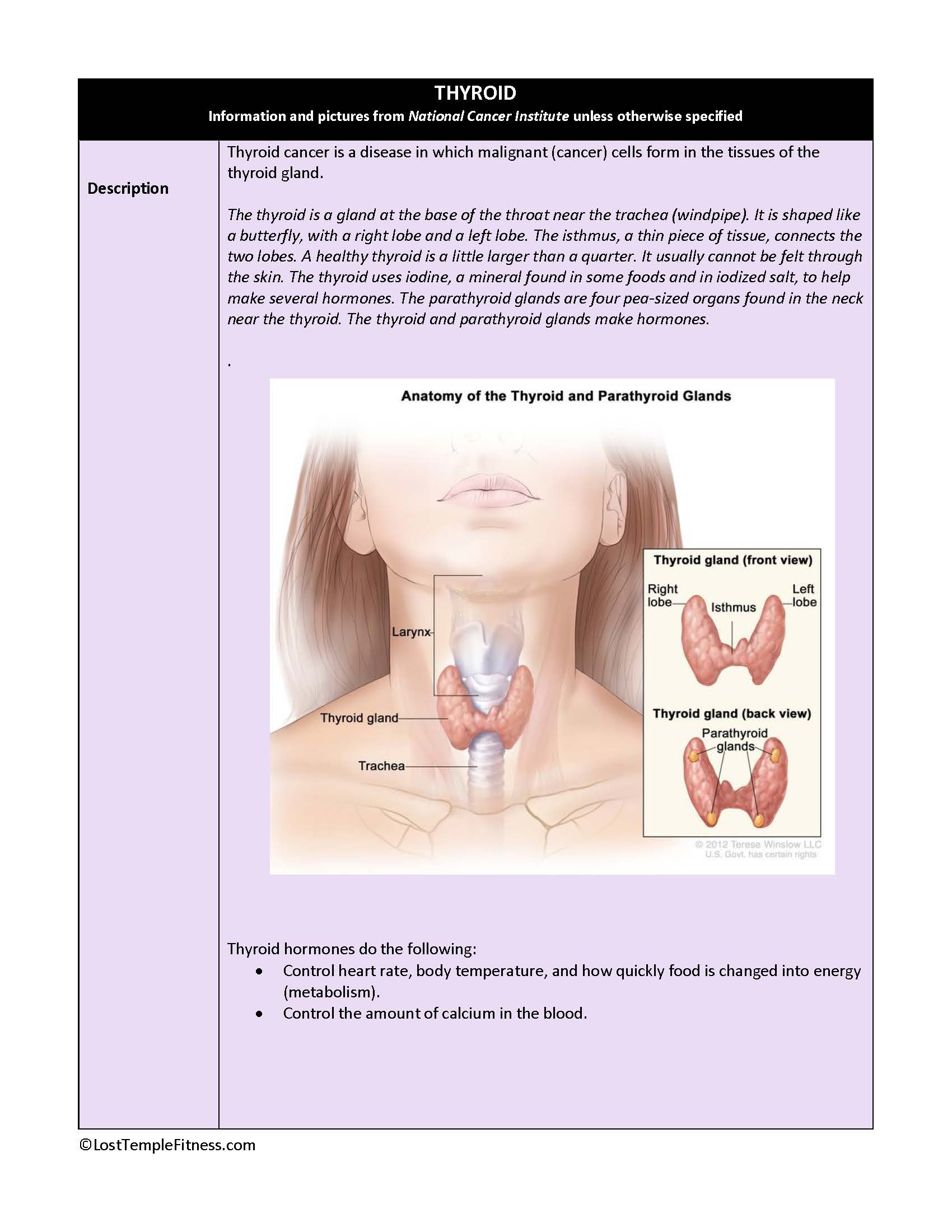Types of Cancer
Treatments, Side Effects & Exercise Precautions
Your Body is Your Temple
Research, Resources & Education
Table of Contents
According to the National Cancer Institute the most common cancers (listed in descending order according to estimated new cases in 2020) are breast cancer, lung and bronchus cancer, prostate cancer, colon and rectum cancer, melanoma of the skin, bladder cancer, non-Hodgkin lymphoma, kidney and renal pelvis cancer, endometrial cancer, leukemia, pancreatic cancer, thyroid cancer, and liver cancer. Below are listed the most common cancers (see separate section for Breast cancer). The PDFs may include descriptions, risks, treatments, side effects, recovery after surgery and exercise recommendations.
Information and pictures from National Cancer Institute unless otherwise specified
An adult central nervous system tumor is a disease in which abnormal cells form in the tissues of the brain and/or spinal cord.
PDF includes risk factors, treatment, potential side effects, recovery after surgery and exercise precautions.
Bladder cancer is a disease in which malignant (cancer) cells form in the tissues of the bladder.
PDF includes risk factors, treatment, recovery. Please see Exercise for Kegel Exercises
Colorectal cancer is a disease in which cells in the colon or rectum grow out of control. Sometimes it is called colon cancer, for short.
PDF includes risk factors, treatment, side effects, recovery and exercise after surgery.
Endometrial cancer is a disease in which malignant (cancer) cells form in the tissues of the endometrium.
PDF includes risk factors, treatment, side effects, recovery after surgery. recommendations and examples of stretches.
Please see Exercise for Kegel
Renal cell cancer (also called kidney cancer or renal cell adenocarcinoma) is a disease in which malignant (cancer) cells are found in the lining of tubules (very small tubes) in the kidney.
PDF includes risk factors, treatment, side effects, recovery after surgery and exercise recommendations.
CLL- Chronic lymphocytic leukemia is a type of cancer in which the bone marrow makes too many lymphocytes.
Adult acute myeloid leukemia (AML) is a type of cancer in which the bone marrow makes abnormal myeloblasts (a type of white blood cell), red blood cells, or platelets.
PDF includes risk factors and treatments.
Melanoma is a disease in which malignant (cancer) cells form in melanocytes (cells that color the skin).
PDF includes risk factors, treatment and possible side effects
Adult non-Hodgkin lymphoma is a disease in which malignant (cancer) cells form in the lymph system.
PDF includes risk factors, treatment and possible side effects.
Pancreatic cancer is a disease in which malignant (cancer) cells form in the tissues of the pancreas.
PDF includes risk factors, treatment, possible side effects, recovery after surgery, exercise recommendations and diabetic considerations.
Prostate cancer is a disease in which malignant (cancer) cells form in the tissues of the prostate.
PDF includes risk factors, treatment, possible side effects and recovery after surgery.
Rectal cancer is a disease in which malignant (cancer) cells form in the tissues of the rectum.
PDF includes risk factors, treatment, side effects and exercise after surgery.
Also see Colon.
Gastric cancer is a disease in which malignant (cancer) cells form in the lining of the stomach.
PDF includes risk factors, treatment, side effects and recovery after surgery.
Thyroid cancer is a disease in which malignant (cancer) cells form in the tissues of the thyroid gland.
PDF includes risk factors, treatment, side effects, recovery after surgery and exercise recommendations.
References
| CANCER TYPE | SPECIFIC | COMPANY |
|---|---|---|
| All | Exercise General | CETI |
| Brain - Adult Central Nervous System | Treatment | National Cancer Institute |
| Bladder | Kegal exercises (Men) | Ahlering, Thomas MD - Kegel |
| Bladder | Treatment | National Cancer Institute |
| Bladder | General | Bladder Cancer Canada |
| Bladder | General | Cancer Support Community |
| Bladder | Kegal exercises | Medline Plus |
| Breast | See Breast Cancer | Lost Temple Fitness - Breast Cancer |
| Colorectal | Treatment | National Cancer Institute |
| Colorectal | General | CDC |
| Colorectal | Treatment | Web MD |
| Endometrial | General | Cancer Support Community |
| Endometrial | General | National Cancer Institute |
| Endometrial | Treatment | National Cancer Institute |
| Kidney - Renal | General | National Cancer Institute |
| Kidney - Renal | Treatment | National Cancer Institute |
| Leukemia | General | National Cancer Institute |
| Leukemia | Adult Acute Lymphoblastic Leukemia Treatment | National Cancer Institute |
| Leukemia | Acute Myeloid Leukemia Treatment | National Cancer Institute |
| Leukemia | Chronic Lymphocytic Leukemia | National Cancer Institute |
| Leukemia | Chronic Myelogenous Leukemia | National Cancer Institute |
| Liver | Adult Primary Liver Cancer Treatment | National Cancer Institute |
| Liver | Liver Transplant | Mayo Clinic |
| Liver | Physiotherapy in Liver Transplantation | In-Tech |
| Lung | General | National Cancer Institute |
| Lung | Non-Small Cell Lung Cancer Treatment | National Cancer Institute |
| Lung | Small Cell Lung Cancer Treatment | National Cancer Institute |
| Melanoma | Melenoma Treatment | National Cancer Institute |
| Melanoma | Skin Cancer Treatment | National Cancer Institute |
| Non-Hodkins Lymphoma | General | National Cancer Institute |
| Non-Hodkins Lymphoma | Treatment | National Cancer Institute |
| Pancreatic | General | National Cancer Institute |
| Pancreatic | Treatment | National Cancer Institute |
| Pancreatic | Diabetes - Get Active | CDC |
| Pancreatic | Exercise after surgery | University Hospitals of Leicester |
| Prostate | General | National Cancer Institute |
| Prostate | Genetics | National Cancer Institute |
| Prostate | Prevention | National Cancer Institute |
| Prostate | Transurethral resection (TURP) | Mayo Clinic |
| Rectal | General | American Cancer Society |
| Rectal | General | National Cancer Institute |
| Rectal | Treatment | National Cancer Institute |
| Stomach - Gastric | Treatment | National Cancer Institute |
| Stomach - Gastric | What is a gastrectomy? | Web MD |
| Thyroid | General | National Cancer Institute |
| Thyroid | Treatment | National Cancer Institute |
| Thyroid | Complications and Risks of Tracheostomy | John Hopkins |
Disclaimer: The information in this book/website is for educational purposes only and has been obtained through research, publications and personal experience, and shall not be liable for incorrect information. Any mentioned publications or websites does not imply endorsement. As this industry is ever changing, I urge readers to confirm the information contained in this book/website. The author will not be liable for any injuries sustained from practicing techniques taught or for any typographical errors or omissions.
It is advised that you always check with your medical doctor or physical therapist before starting an exercise program or change in diet.
|
Information and pictures from National Cancer Institute unless otherwise specified |
